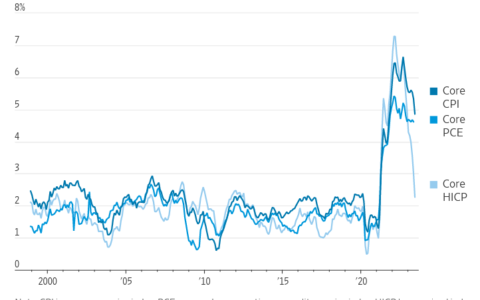
Inflation is a naturally occurring economic phenomenon that occurs when there is an increase in the general price level of goods and services in an economy over a period of time. This increase in prices affects the purchasing power of money, making it difficult for people to maintain their standard of living. Inflation can also have a significant impact on the retirement savings of Americans, particularly those who have invested their savings in 401ks and other retirement plans.
The current rate of inflation in the United States has been steadily increasing in recent years, driven by factors such as the COVID-19 pandemic, rising oil prices, and increasing demand for goods and services. This increase in inflation has led to a decrease in the purchasing power of money, making it more difficult for Americans to afford the essentials, such as food, housing, and healthcare. It is also affecting the value of retirement savings, as the increasing prices of goods and services eat away at the value of retirement accounts.
401k plans, which are one of the most popular retirement savings vehicles in the United States, are especially vulnerable to the effects of inflation. This is because 401k plans are typically invested in a variety of assets, including stocks, bonds, and mutual funds. As inflation increases, the value of these assets may decrease, reducing the overall value of the 401k account.
The impact of inflation on retirement savings can be particularly severe for older Americans who are closer to retirement and who may have already reduced their investment risk. For these individuals, a decrease in the value of their retirement savings can have a significant impact on their ability to maintain their standard of living in retirement.
To mitigate the impact of inflation on their retirement savings, many Americans are turning to alternative investment vehicles, such as real estate and precious metals. Real estate, for example, can provide a hedge against inflation as the value of properties is often directly linked to inflation. Precious metals, such as gold and silver, can also provide a hedge against inflation as their value often increases during periods of high inflation.
However, investing in alternative assets also comes with its own set of risks and challenges. Real estate, for example, can be a complex and illiquid investment, requiring a significant amount of money upfront and a strong understanding of the real estate market. Investing in precious metals can also be risky, as the value of these assets is heavily influenced by market conditions and geopolitical events.
Another option for mitigating the impact of inflation on retirement savings is to increase contributions to 401k plans and other retirement accounts. By increasing contributions, individuals can offset the effects of inflation on their retirement savings and ensure that they have enough savings to maintain their standard of living in retirement.
It is important for Americans to be proactive in managing the impact of inflation on their retirement savings. This can include regularly monitoring the performance of their retirement accounts and adjusting their investment strategies as needed. It can also include seeking the advice of a financial advisor or investment professional who can help individuals develop a retirement savings plan that takes into account their personal financial situation and goals.
In conclusion, inflation is having a significant impact on the retirement savings of Americans, particularly those who have invested their savings in 401ks and other retirement plans. To mitigate the impact of inflation on their retirement savings, individuals may need to consider alternative investment vehicles, increase their contributions to retirement accounts, and seek the advice of a financial advisor. By being proactive in managing the impact of inflation on their retirement savings, Americans can ensure that they have enough savings to maintain their standard of living in retirement.
Author:Com21.com,This article is an original creation by Com21.com. If you wish to repost or share, please include an attribution to the source and provide a link to the original article.Post Link:https://www.com21.com/inflation-on-retirement.html







